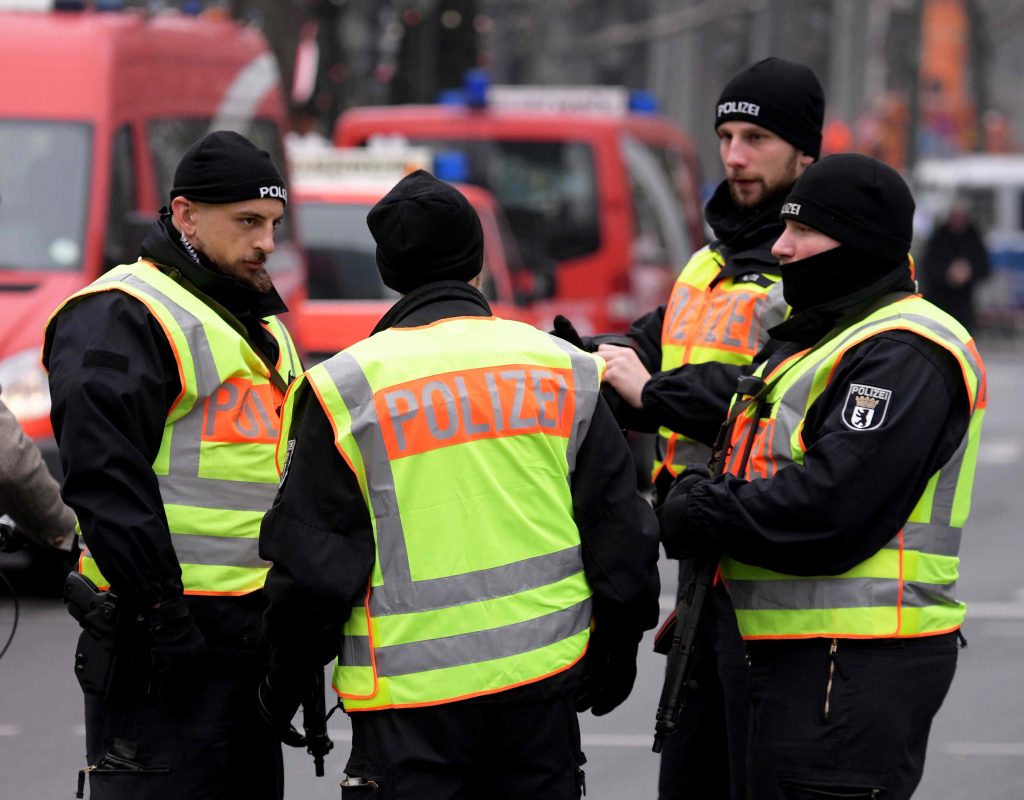
Hundreds of thousands, if not millions, of sports fans have an appointment to keep in Europe this summer, some with the classic “king of sports”, others with team and individual sports of every sort. In the months ahead, the world will be looking to the capitals of our continent’s two largest and most powerful countries, Germany and France. Berlin will be kicking off proceedings on 14 June, when (along with other cities) it hosts the final phase of the European Football Championship for a month, through to 14 July. The German capital will then pass the baton straight on to Paris, where the opening ceremony of the 33rd Olympic Games is scheduled for July 26. The closing ceremony will be held on August 11.
Undoubtedly, this summer holds a good deal of spectacle and intense emotion in store, along with some fierce competition and several new records from the elite champions of our era. That, and a huge amount of revenue for those who have invested in sports, tourism and advertising. Unfortunately, the story doesn’t end there, though. Because the governments of Europe (and of the states hosting these mammoth events, in particular) and the relevant organizing bodies have at least three manor causes for concern: climate crisis, terrorism, and hooliganism.
So how ready and prepared are the organizers to confront these multiple challenges? And to what extent can they do so without taking away from the events, or moving away from the principles they claim to espouse? Moreover, does everything depend on the decisions they take and the way they implement them, or are some of the possible scenarios—a prolonged and unprecedented heatwave, for example—simply beyond their capacity?
Heatwaves—Meteorological predictions cause anxiety
The year 2024 is likely to go down as the year in modern global history. In Europe, in particular, according to data from Copernicus, the average ground surface temperature in the December-February quarter was 1.44 degrees Celsius higher than the previous average, making this winter the second warmest in history after 2019–2020.

A pharmacy sign displays a temperature of 40 degrees Celsius (104 Fahrenheit) at the Spanish Steps amid a heatwave in Rome, Italy, June 20, 2024. REUTERS/Guglielmo Mangiapane
The above data and forecasts have sounded the alarm for organizers of major events, and in particular of those that take place outdoors, like football matches and athletics. “Will athletes at the Paris Olympics be forced to endure the ordeal of a heatwave that turns the Paris region into an oven? Although it is still too early to answer this question, the recent past is enough to make organizers sweat,” a recent report in le Monde noted. The author added that “according to data from the French meteorological service Météo-France, France has experienced 22 heatwaves since 2010 (only 2014 and 2021 were heatwave-free), which is more than occurred in the 52 years between 1947 and 2000. Over the past five years alone, France experienced two heatwaves in 2019, two in 2020, three in 2022 and one in 2023. And some of them occurred during the exact period in which the Olympics will be staged this year.”
Similar concerns are also prevalent in Berlin ahead of Euro 2024, even if the climatic threat to the German capital is considered less severe than that to Paris. It is no coincidence that last summer’s heatwaves forced Health Minister Karl Lauterbach to admit that the country is not prepared to cope with high temperatures.
Terrorism: On the lookout for bombs and suicide-bombers
“It seemed like a good idea at the time. French President Emmanuel Macron promised the opening ceremony of the Paris 2024 Olympics on the banks of the River Seine in July would be a ‘moment of beauty, art, celebration of sports and our values.’ Instead, the grand opening and accompanying circus surrounding the sporting extravaganza threatens to turn into a nightmare for France’s security apparatus.” This was the conclusion of an article published in Politico on April 24, highlighting a threat that many fear will cast a long, dark shadow over the Games: the specter of terrorism.

After all, France—and Paris, in particular—has had bitter and recent first-hand experience of terrorism, starting in 2015 with the attack on the offices of the satirical magazine Charlie Hebdo and the bloody, three-day manhunt that followed, and continuing with the massacre of 130 people in the Bataclan theater, surrounding streets and the Stade de France stadium, where the French and German national teams were playing a friendly football match. And this summer, the French capital will become the beating heart of the 2024 Olympic Games. A year later, it was Berlin’s turn to experience the horror: It was 19 December 2016 when a truck was transformed into a killing machine in a central Christmas market, when its driver drove it straight into unsuspecting citizens, killing 12 and injuring over 50.
With these memories still fresh, and Europe experiencing a new period of racial and religious tension, the governments of France and Germany are rushing to take steps to avoid similar scenes, especially after the recent deadly attack in Moscow, for which an ISIS offshoot claimed responsibility. In fact, Paris is seriously considering moving the Games’ opening ceremony from the banks of the Seine to the less spectacular but far safer environment of the Stade de France, or the Trocadero.
Hooliganism—Keeping the “ultras” and fanatics out
France may not be especially perturbed by the threat of hooliganism during the Olympics, which is not an event hooligans tend to act up at, but that is definitely not true of Germany and the Euros. The authorities admit they are worried about organized groups of extreme fans arriving en masse from countries whose national teams are playing in the final phase of Euro 2024, and determined to settle scores, both between themselves and with the police. The activities of Fenerbahçe’s hard-core fans, and the clashes between supporters of Olympiacos and Panathinaikos during the EuroLeague Final Four, have certainly set off alarm bells for the German authorities, combined with the hand-to-hand fighting between Lyon and Paris Saint-Germaine fans in neighboring France just before the Cup Final last Sunday.

Soccer Football – Euro 2024 – Group D – Poland v Austria – Berlin Olympiastadion, Berlin, Germany – June 21, 2024 General view of fans as Poland’s Robert Lewandowski lines up during the national anthems before the match REUTERS/Fabrizio Bensch
According to a report by the Associated Press, preventative measures are already being intensified against this backdrop. “Zero tolerance of violence is our main aim,” said one of the officers with an executive role to play in providing security for the Euros. At the same time, reports from Britain—a long-standing hooliganism black spot—indicate that the government has already issued a travel ban on 1,600 people believed to be part of violent groups. This number may well increase as the tournament gets closer. “These measures will ensure that true football fans can travel to the tournament in safety, while simultaneously preventing hooligans from committing their crimes abroad,” the minister said in a statement, noting that the German authorities are cooperating closely with their counterparts abroad.

Soccer Football – Euro 2024 – Fans gather for Poland v Austria – Berlin, Germany – June 21, 2024 Poland fans react as they watch the match at the fan zone at the Brandenberg Gate REUTERS/Nadja Wohlleben
Coordinated by Aggelos Skordas
Source: tovima.com
Latest News

Airbnb Greece – Initial CoS Ruling Deems Tax Circular Unlawful
The case reached the Council of State following annulment applications filed by the Panhellenic Federation of Property Owners (POMIDA)

Mitsotakis Unveils €1 Billion Plan for Housing, Pensioners, Public investments
Greek Prime Minister Kyriakos Mitsotakis has announced a new set of economic support measures, worth 1 billion euros, aiming to provide financial relief to citizens.

Alter Ego Ventures Invests in Pioneering Gaming Company ‘Couch Heroes’
Alter Ego Ventures' participation in the share capital of Couch Heroes marks yet another investment by the Alter Ego Media Group in innovative companies with a focus on technology.

Corruption Still Plagues Greece’s Driving Tests
While traffic accidents continue to claim lives on Greek roads daily, irregularities and under-the-table dealings in the training and testing of new drivers remain disturbingly widespread

Pope Francis Died of Stroke and Heart Failure Vatican Confirms
As news of the official cause of death spread, tributes poured in from across the globe. The 1.4 billion-member Catholic Church is united in grief, remembering a pope who championed inclusion, justice, and compassion

Increase in Both Museum Visits, Revenues for 2024
As expected, the Acropolis was the top archeological site in the country, followed by Sounion, Mycenae, the ancient theater of Epidaurus, and Vergina in northern Greece

Where Greece’s Tourists Come From: A Look at 2025’s Top Visitor Markets
The United Kingdom continues to hold the top spot as the largest source of incoming tourism, with 5.6 million seats booked for Greece this summer — up 2.2% from last year. This accounts for 20% of all international air traffic to Greece

Pope Francis: A Pontiff Who Reshaped the Papacy and Sparked a Global Conversation
His first words from the balcony of St. Peter’s Basilica—“Brothers and sisters, good evening”—set the tone for a pontificate that would challenge norms, favor mercy over dogma, and bring the papacy closer to the people.

When Blue Skies was Unmasked as ND’s Political ‘Slush Fund’
The fact that so many top New Democracy (ND) party cadres were paid by the firm Blue Skies, owned by Thomas Varvitsiotis and Yiannis Olympios, without ever citing this publicly, raises very serious moral issues, regardless of the legality

Greek Women’s Water Polo Team Top in the World after 13-9 Win Over Hungary
The Greek team had previously defeated another tournament favorite, the Netherlands, to reach the final.











![Πλημμύρες: Σημειώθηκαν σε επίπεδα ρεκόρ στην Ευρώπη το 2024 [γράφημα]](https://www.ot.gr/wp-content/uploads/2025/04/FLOOD_HUNGRY-90x90.jpg)




![Ξενοδοχεία: Μεγάλο το ενδιαφέρον για επενδύσεις στην Ελλάδα – Η θέση της Αθήνας [γραφήματα]](https://www.ot.gr/wp-content/uploads/2025/03/Athens-hotels-90x90.jpg)
























 Αριθμός Πιστοποίησης
Αριθμός Πιστοποίησης